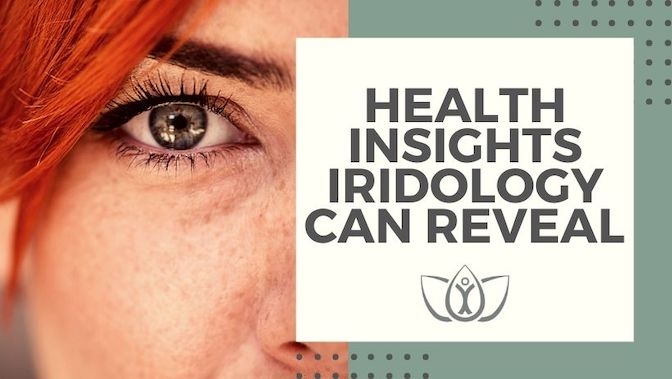Modified on 3/23/2022
Eyes are the window to the soul. But did you know that your eyes can also reflect your physical health?
Our eyes tell a story. We can look into someone’s eyes and instantly determine how their day is going. We can usually tell if they’re tired, sad, or not feeling well.
Is there a science behind these observations? Or is our ability to read others based on their eyes simply coincidental?
Iridology allows practitioners to analyze someone's health by observing the eye. Far from coincidence, iridology is a structured discipline that requires extensive experience and training to accurately assess an individual's eye.
An iridology certification is one way to gain the experience and practice needed to correctly assess the eyes. With this certification, you can provide supportive tools based on your findings.
So, how can iridology help someone to improve or manage their health? Read on to discover 5 ways a certified and experienced iridologist can provide insight into an individual’s health.
1. Assessing Overall Health
Our irises contain thousands of nerves. These nerves are connected to systems in the body via the brain. In turn, the health of the body is recorded by these nerve impulses through the brain and onto the iris.
Blood vessels and muscle fibers are also present in our irises. The information recorded in these vessels and muscle fibers can provide an iridologist with a wealth of information. By analyzing the fibers in the iris, an iridologist can offer their clients an overall health assessment. In conjunction with a client’s wellness history, using iridology can help health professionals to recommend lifestyle changes.
The eyes can also be monitored for positive or negative changes. This can help the iridologist to alter their previous recommendations and suggest new ways for the client to improve their wellness.
2. Identifying Potential Imbalances
In the practice of iridology, health tendencies and potential imbalances can be discovered through spots, discoloration, or changes in the fibers of the iris. The iridologist then uses radial and clocklike charts to determine which area of the body may be involved.
The affected iris is also important to the iridologist. For example, problem areas in the left eye signal potential imbalances in the organs on the left side of the body. Whereas the right iris corresponds with organs on the right side of the body.
3. Determining Health Tendencies
Our genes affect our irises and the rest of our bodies. By looking at a person’s iris, the iridologist can determine what lifestyle choices the client may want to focus on. Even if the client isn’t currently experiencing any problems, iridology can help the client to embrace positive lifestyle habits based on their irises’ genetic markers.
4. Analyzing Organ Function
It’s difficult to know if our organs are functioning properly. Iridology can provide insight into which organs are over or underactive. By gaining this information, an iridologist can then make suggestions based on the affected organ system and any other imbalances that may be contributing to the organ’s current state.
5. Nutrition
Our genetics only tell a small part of our story. Our environment, diet, and lifestyles can play an even larger role in our health. By examining the iris, an iridologist can help to assess a person’s potential nutritional needs or imbalances.
In short, iridology assessments can give the client a tool that can help them to support and become more aware of potential health concerns. The iridologist can then work with their client to help improve these areas of health and wellness.
How to Gain an Iridology Certification
Many don't realize that the history of iridology dates back to the 1600s. You can harness the power of this longstanding tradition by gaining an iridology certification. This certification will give you the skills, knowledge, and tools you need to use this practice professionally and in your everyday life.
Interested in becoming a Master Iridologist? Check out our Master Iridology program and enroll today.


